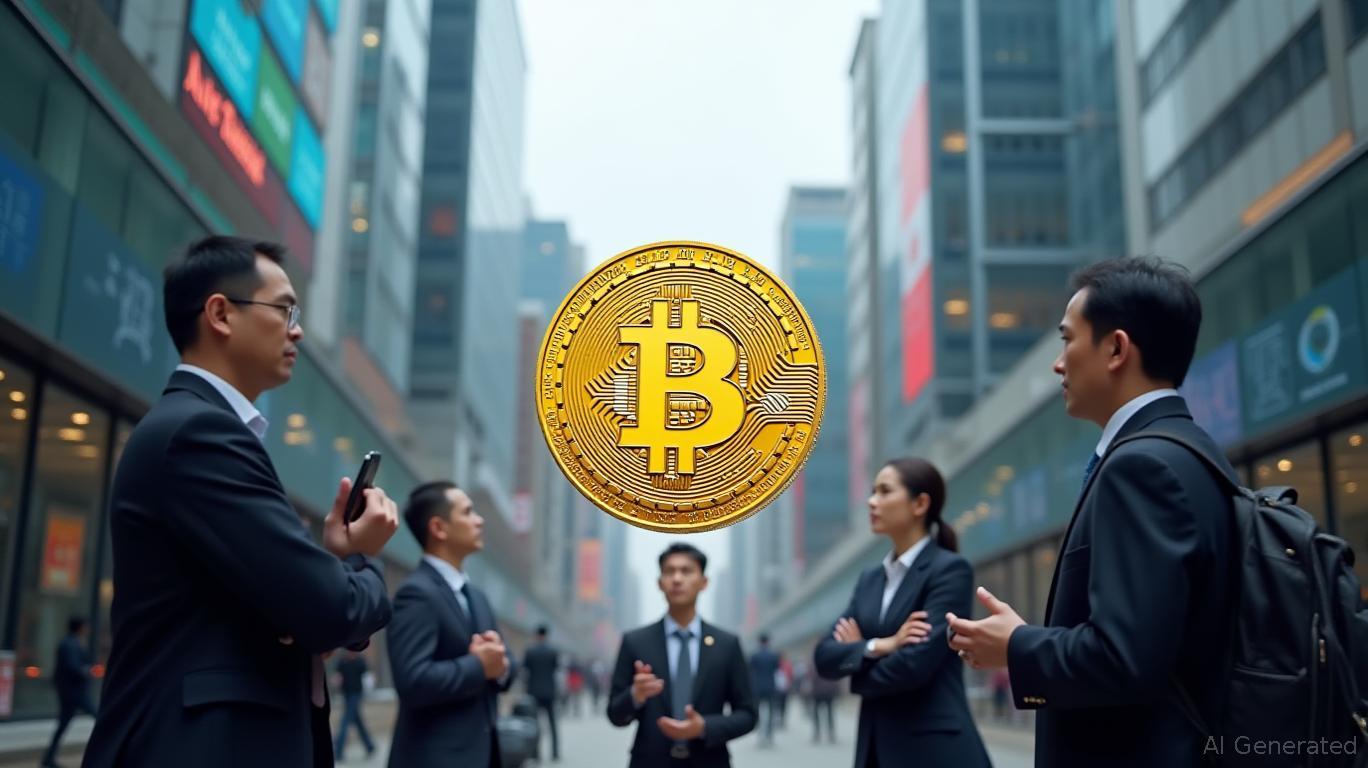Hong Kong's Stablecoin Regulations Balance Innovation and Investor Protection
- Hong Kong mandates stablecoin issuance by SFC-licensed providers to strengthen investor protection and market stability. - Regulators reject DAT structure conversions for listed firms, warning against inflated valuations exceeding crypto holdings' value. - The framework aligns with global trends but contrasts with U.S. permissiveness, balancing innovation against mainland China's stricter crypto controls. - Stablecoin transaction volumes hit $4.65T in late 2025, yet regulators stress education to mitigat
Hong Kong has rolled out a fresh regulatory system for stablecoins, representing a major move in its bid to become a leading global center for digital assets. The new rules, detailed in the "Stablecoin Regulations," stipulate that only "recognized providers"—those holding a Type 1 license from the Hong Kong Securities and Futures Commission (SFC)—are permitted to issue designated stablecoins. This rule is already being enforced, with companies such as New Margin Technology Holdings Limited, a publicly traded firm in Hong Kong, engaging in over-the-counter (OTC) stablecoin transactions like
Authorities have also increased scrutiny of listed firms aiming to implement Digital Asset Treasury (DAT) models, where companies use cash reserves to acquire cryptocurrencies. The Hong Kong Stock Exchange has turned down proposals from at least five businesses seeking to transition into DAT entities, as reported by a

This updated framework is in line with Hong Kong’s wider fintech goals. The Hong Kong Monetary Authority (HKMA) has revealed plans to build a comprehensive digital currency system, aiming to support the coexistence of tokenized deposits, digital Hong Kong dollars, and regulated stablecoins, as outlined in a
Stablecoin market activity has seen strong momentum, with transaction volumes reaching $4.65 trillion in the week ending October 30, 2025, according to Panewslab. This growth is fueled by institutional involvement, such as JPMorgan Chase’s tokenization of private equity funds and Circle’s introduction of the Arc blockchain public testnet. Despite this, regulators remain cautious, stressing the importance of investor education to reduce risks linked to volatile or poorly understood digital assets.
Hong Kong’s regulatory stance stands in contrast to more lenient markets like the United States, where DAT models have become more common. While the SFC recognizes the potential advantages of crypto treasury strategies, it maintains strict oversight for any company wishing to list as a DAT. This approach is influenced by broader geopolitical factors, as Beijing has increased regulation of mainland companies’ digital asset ventures, including suspending stablecoin initiatives at firms like Ant Group and JD.com, as noted by Cryptopolitan. Hong Kong’s regulatory path therefore seeks to encourage innovation while staying aligned with mainland policy expectations.
As Hong Kong finalizes its digital currency strategy, industry participants are watching closely to see how the SFC and HKMA will address existing regulatory gaps. For now, the focus remains on licensed issuers and investor protection, with the SFC cautioning that a lack of clear regulations could create unforeseen risks for market stability, as reported by CoinEdition. The next few months will be crucial in determining whether Hong Kong can attract crypto-focused companies while upholding its reputation as a well-regulated financial hub.
Disclaimer: The content of this article solely reflects the author's opinion and does not represent the platform in any capacity. This article is not intended to serve as a reference for making investment decisions.
You may also like
U.S. and China Reach Rare Earth Agreement: One Year of Stability Despite Ongoing Competition
- China suspended new export controls on rare earths and other materials for one year, easing U.S.-China trade tensions via a Trump-Xi agreement. - The deal includes U.S. tariff rollbacks and China halting investigations into semiconductor firms like Nvidia , with provisions expiring in 2026. - Experts warn China's 90% refining dominance and low-cost production ensure its strategic leverage remains unchallenged despite temporary concessions. - U.S. rare earth stocks rose, but analysts stress global supply

Bitcoin Updates: Clash Between State Legislation and Community Interests: Texas Community Fails to Enforce Regulations on Bitcoin Mining Operation
- Mitchell Bend, Texas residents rejected incorporation by 25% to regulate a Bitcoin mine's noise pollution, highlighting tensions between crypto operators and communities. - Marathon Digital Holdings opposed the move, filing a 47-page lawsuit claiming it violated state law and would harm operations, but a federal judge denied its restraining order request. - Proponents vowed to continue legal battles through Earth Justice, citing health complaints like sleep disturbances and nausea linked to the mine's co

Bitcoin Updates: Texas Community's Attempt to Control BTC Mining Falls Short, Underscoring Ongoing Regulatory Hurdles for the Industry
- Hood County voters rejected Mitchell Bend's incorporation bid by 25%, blocking noise regulations on MARA's Bitcoin mining facility. - MARA sued over petition flaws, claiming the proposed city aimed to "regulate it out of business," but the case was dismissed before the vote. - Residents cited environmental concerns while MARA implemented noise mitigation measures, highlighting tensions between crypto mining and local communities. - The outcome underscores regulatory challenges for Texas-based miners as l

Lina Khan will serve as co-chair for the transition team of New York City’s incoming mayor, Zohran Mamdani